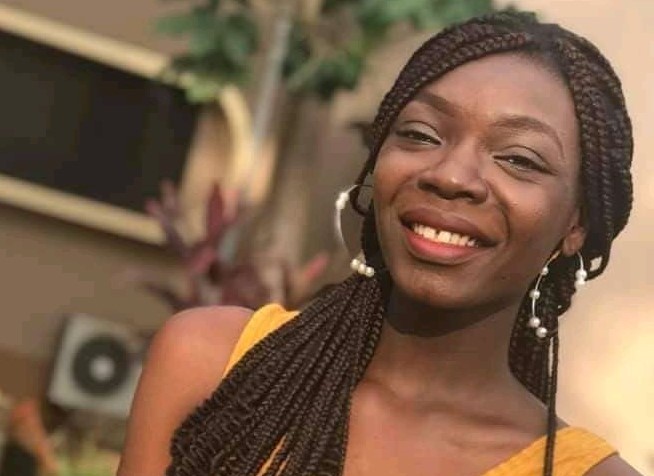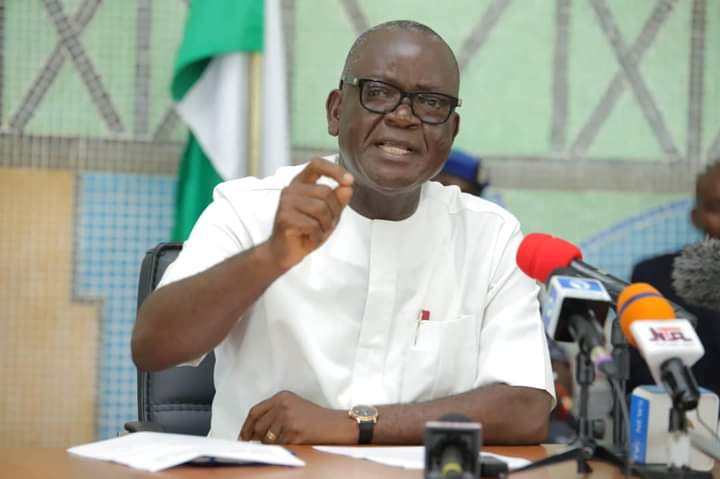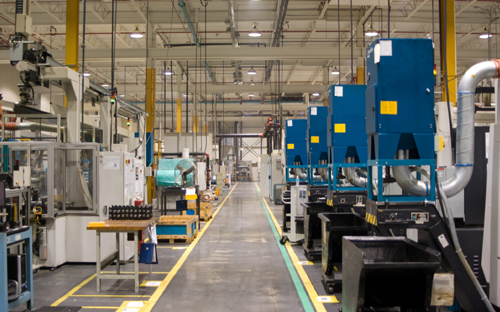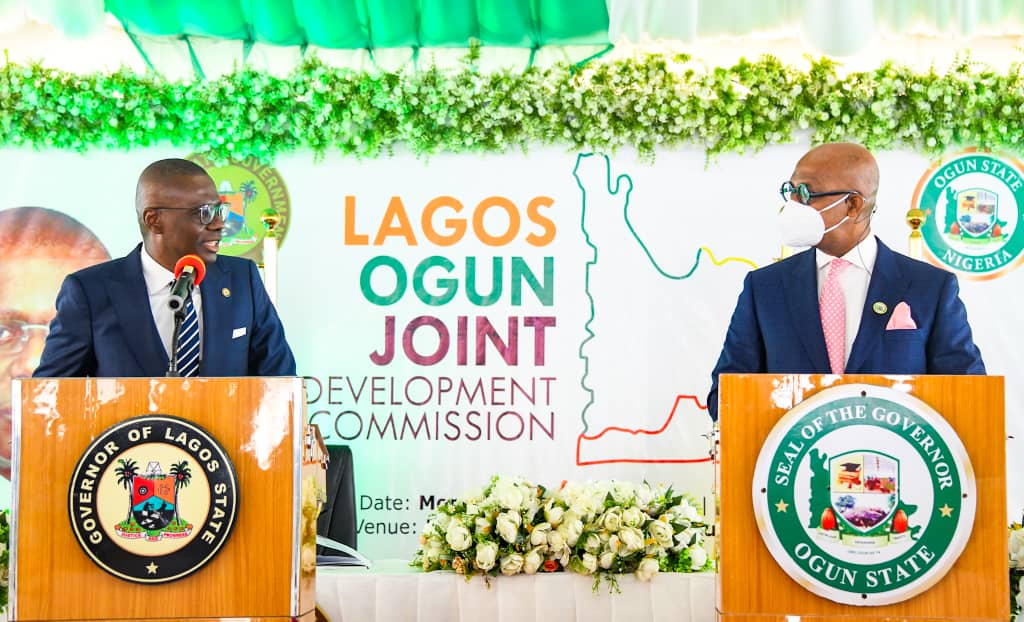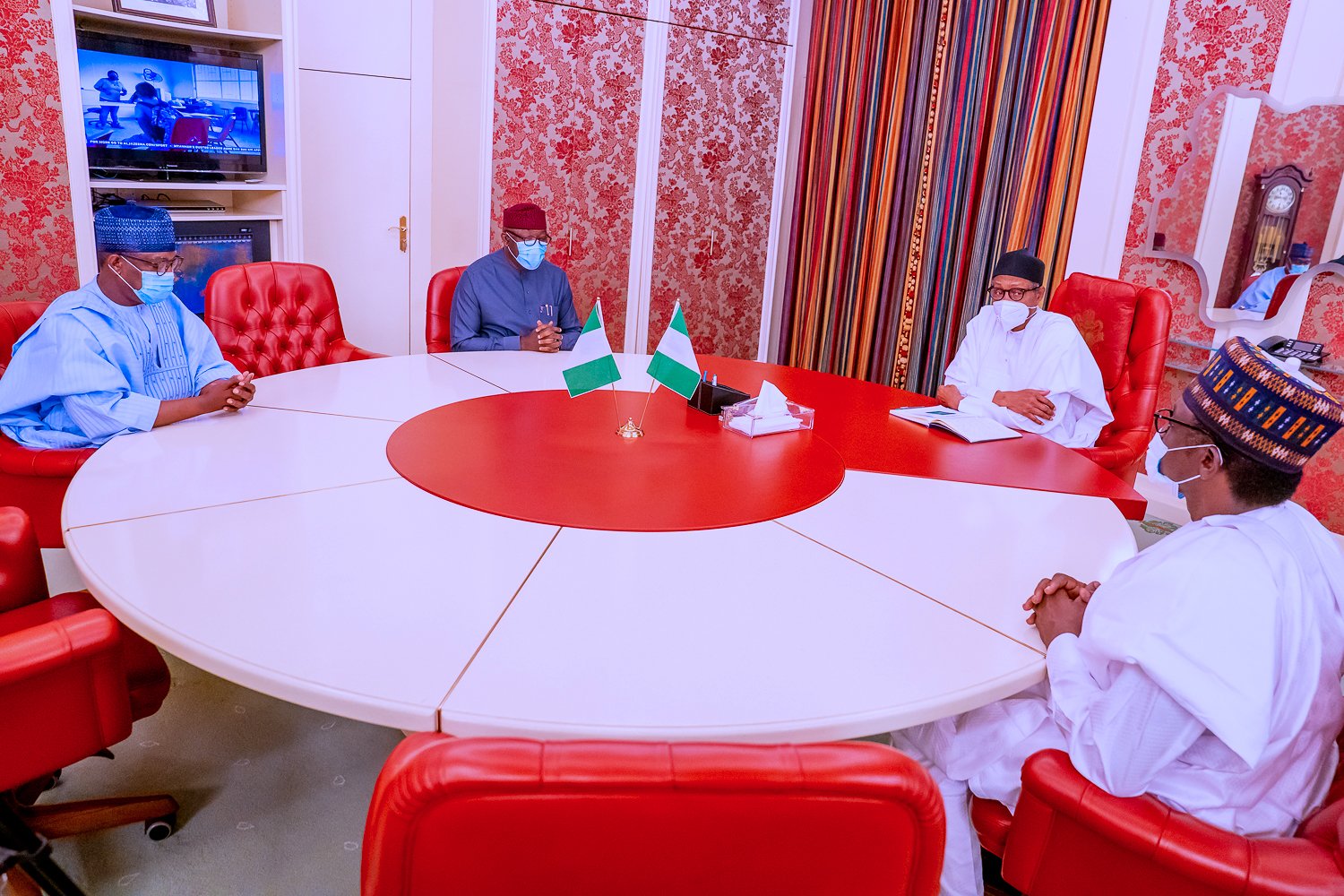Residents of Ogoniland have called on the federal government to expedite action on the provision of clean water following the contamination of surface and ground water as a result of decades-long oil exploration.
They made the call at a recent community event — ‘Amplifying Ogoni Voices’ — implemented through TheCable with support from Bertha Foundation.
Over 300 residents from 17 communities in Gokana, Eleme and Khana LGAs represented youth and women groups, paramount rulers, council of female chiefs, council of village heads and activists.
In March, the minister of environment, Mohammed Abubakar, had flagged off six projects worth N6.4 billion for the provision of clean, safe drinking water.
Advertisement
The provision of potable water is one of the emergency measures which the United Nations Environmental Programme (UNEP) recommended should be provided before any clean up takes place in Ogoni.
Emma Pii, chairman, council of chiefs and village heads in Bodo, praised the federal government for implementing the UNEP report but expressed displeasure over the failure of Hydrocarbon Pollution Remediation Project (HYPREP) to carry out the emergency measures before remediating oil spills.
He said: “HYPREP never did what was in the mind of the Ogoni people. We have been fighting for this emergency measures since, but they didn’t implement any part of, rather they are doing what seems good to them. What they are doing today in Ogoni community is not a clean-up at all. They just do what they want to do, call their contractors and then move out when they are done.”
Advertisement
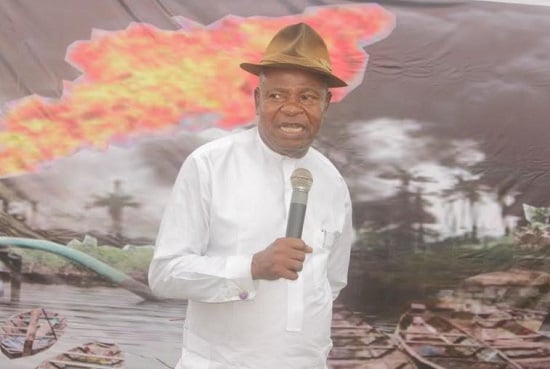
Stephen Kpea, paramount ruler of Mogho community where the event held, urged indigenes to keep the Ogoni struggle for environmental justice alive.
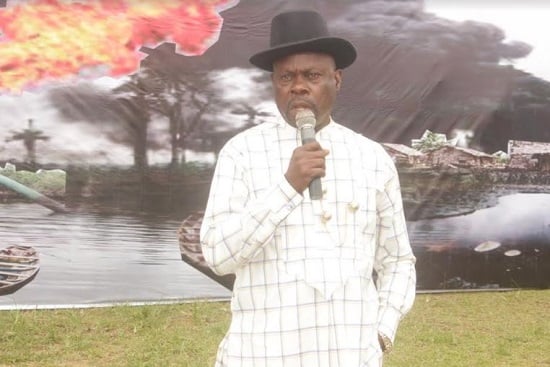
Also speaking at the event, Grace Namon, an activist and leader of the Women of Peace Movement, said: “We have not seen any water. We have not seen the alternative means of livelihood they said they will provide — and we are suffering.
Advertisement
“If you want to go in to see what HYPREP is doing at the sites, you are not given the opportunity to go in. Why is it that the area that belongs to Ogoni, Ogonis cannot go in there to see what is happening. What are they hiding?”
The federal government had said six water projects will be built across the four local government areas of Ogoniland — Gokana, Eleme Tai and Khana — and that 10 million litres of water would be supplied to the communities daily.
Fyneface Dumnamene, executive director of Youths and Environmental Advocacy Centre (YEAC), said the tedious bureaucratic bottlenecks involved in the release of funds to kickstart the water projects might be a problem for the execution.
“Government should relax tedious public procurement procedures and other administrative bottle-necks and fast-track the provision of portable drinking water for the people,” he said.
Advertisement
Eric Dooh, a high chief in the community who recently won the court case against Shell at The Hague, prays it becomes a reality.
“The money (N6.4b) that has been earmarked for water projects in Ogoni is on paper, we haven’t seen it on ground,” he said.
Advertisement
Noble Nwolu, a youth leader from Eleme told TheCable that “after they announced, we haven’t seen any physical thing. I think the reconstitution of the board of trustee of HYPREP is responsible for the delay. Even the contractors working on land remediation have not been able to continue because of lack of funds. They need new signatories to the account before they can sign and work can go on”.

Advertisement
‘Environmental Refugees’
The event, which also featured a drama presentation titled ‘Environmental Refugees’, was convened by Abiose Adams, the senior programme officer of Cable Newspaper Journalism Foundation (CNJF) as part of the amplification project of her Bertha fellowship year.
Advertisement
With a historical undertone, the play reflects the struggles of the Ogonis and what has become of their present-day reality.
The drama also portrays the morass of social and ecological problems several oil-bearing communities are confronted with.
Baridilo, a fictional character, typifies the struggles of the Ogoni people. His mother died from a strange disease associated with drinking polluted water, a common story among the inhabitants. And for this, he is bitter and ready to keep speaking out until the government gives his people the justice they deserve.
On the other hand, his antagonist, Barinada, an unemployed graduate, rakes in million from bursting pipelines and locally refining crude for local consumption. He and his group consider this a way of taking vengeance on the government for neglecting them.
Though the two lead characters would clash over a young woman, Lebia, their inner struggle is not just about the woman, but for environmental justice. They both want the same thing but would use different methods.
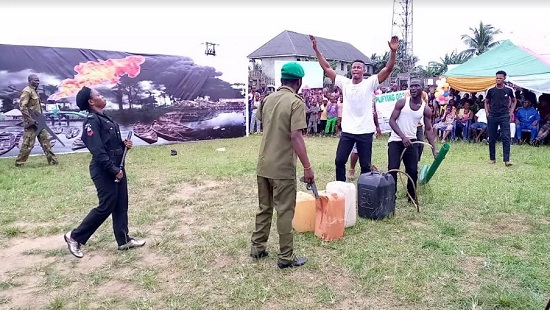
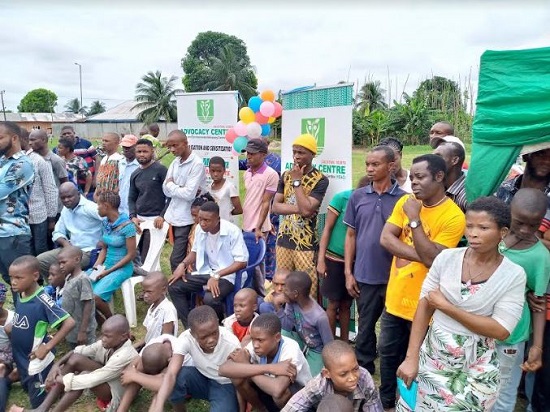

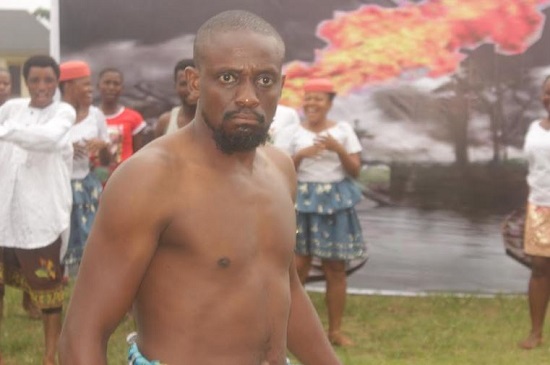
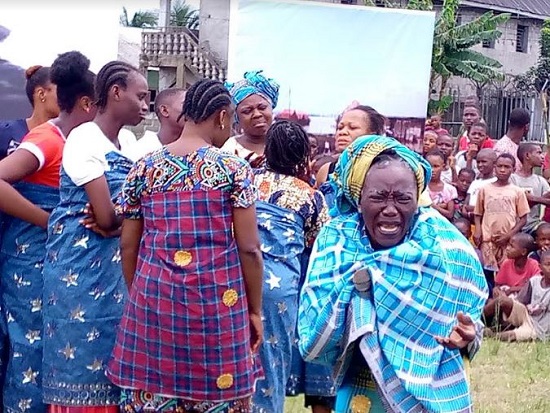
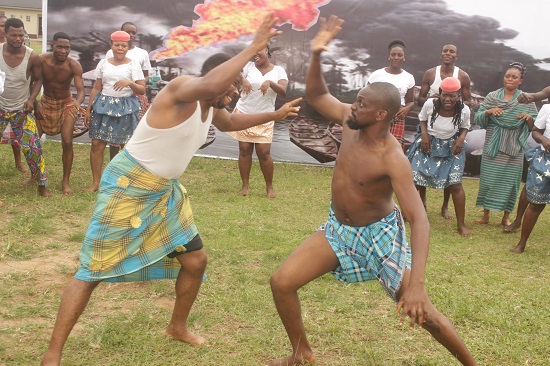
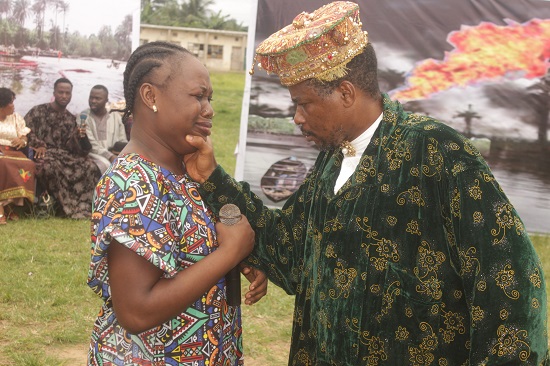
The cast and crew
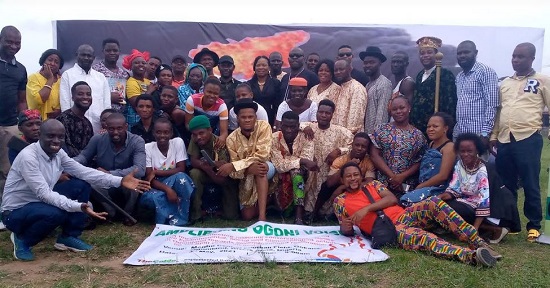
Written and produced by Adams, the play was directed by Shuiabu Husseini, and featured Victor Coker (Baridilo), Adejumo Smart (Barinada), Soibifaa Dokubo, Efe Awusa, Ogbodu Ruth, Abe Oluwaseun, Ubit Princewill, Jumai Buba, among others.
Add a comment


